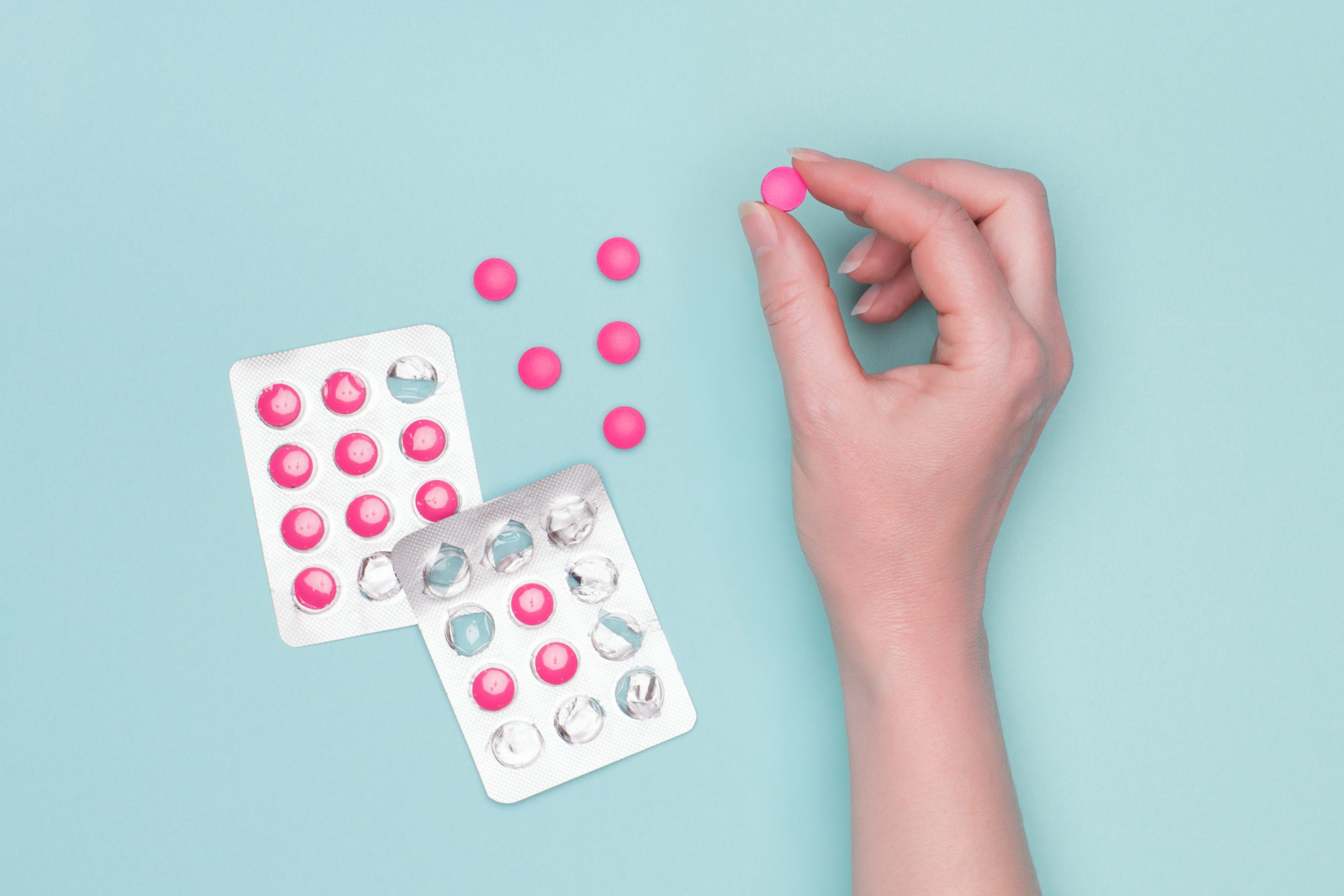Peri, post, or just plain meno - here’s the lowdown on your stage of the ‘pause’
These are the three stages of menopause - do you know what they are?


As women, we battle against our hormones, arguably from our teenage years through to older age.
And there are waves to overcome in later life, in the forms of the three stages of menopause: perimenopause, menopause and postmenopause.
There was a time when 'menopause’ was a forbidden word. Known as ‘the change’ and typified by hot flushes, mood swings, loss of libido and changes in skin, hair and body, it was nothing to celebrate, and certainly not spoken about.Today, though, there’s a different agenda. Led by women in the spotlight, from Viola Davis and Gwyneth Paltrow to Meg Mathews and Lorraine Kelly, plus a whole host of women who are writing and podcasting about the menopause, the ‘M’ word is becoming part of our vocabulary.
But ‘menopause’ is no longer a one-name-fits-all term. For every woman, it looks and feels different, and the three key stages of perimenopause, menopause and postmenopause bring their own challenges.Whether you are at the beginning of your menopause journey, midway through or approaching the end, there’s probably one thing you have in common with many other women – it’s still hard to talk about. You either feel like ‘the only one’, or you wonderif your symptoms are the worst.
A survey from Superdrug found that 50% of women who hadn’t yet experienced menopause were worried about approaching it. Symptoms that most concerned them included, at number one, hot flushes, followed by weight gain, mood swings, depression and anxiety.Meanwhile, 63% of working womensay that menopause has had a negative effect on their working life, while the British Menopause Society found that only half of women with bothersome symptoms consult their GPs for help.
Menopause has so many effects, it can be hard to know where to start to help yourself, but a good place is to understand which stage you are at or might be approaching. Read on to discover more.
Stages of menopause: perimenopause
When does the menopause start?
Sign up to our free daily email for the latest royal and entertainment news, interesting opinion, expert advice on styling and beauty trends, and no-nonsense guides to the health and wellness questions you want answered.
Menopause typicallyhappens between the ages of 45-55, with the average woman starting at 51.
What's happening?
Women are often unaware that they’re entering the perimenopause, which can be distressing. Hot flushes and night sweats can start five or more years before your periods stop at menopause.
Dr Sarah Brewer, GP and Healthspan Medical Director, says, "During perimenopause, ovaries produce fewer and weaker follicles until, eventually, you stop ovulating. Only 12% of women wake up one day and never have another period. The other 88% notice fluctuations, with their cycles being longer or shorter, heavier or lighter and, in some cases, with intermittent spotting.
"In early perimenopause, oestrogen levels are still high enough to allow for ovulation. However, these levels are lower than your body is used to, so symptoms may be felt before the cycle changes."
MORE:We asked menopause experts about HRT alternatives following news of a national shortage
Tania Adib, Consultant Gynaecologist at The Lister Hospital, adds, "Menopausal symptoms can start many years before the menopause, while women are still having periods, so they often don’t connect the two. Often, the levels of the hormone progesterone reducefirst, causing mood swings, low mood,anxiety, poor sleep and weight gain without the classic hot flushes.
"As the ovaries “run out” of eggs, so the levels of the hormones normally produced by the ovaries reduces, and this causes symptoms of the menopause."
Not yet 45?
‘Early’ menopause (before the age of 45) may occur for medical reasons, including surgery (for example, removal of the ovaries with or without hysterectomy), chemotherapy or radiotherapy.
But menopause can also happen ‘prematurely’ (before the age of 40). There’s a fairly rare condition – premature ovarian insufficiency (POI) – which is said to have occurred when periods stop before the age of 40.
"POI means the ovaries stop producing eggs, years – sometimes decades – before they should," explains obstetrician and gynaecologist Dr Marie Gerval, who is co-chair of The Daisy Network, the UK’s only POI support charity. "There’s a rapid drop in the production of the hormones oestrogen and progesterone, which play vital roles in women’s health and wellbeing,’ she adds. ‘Studies show that symptoms of menopause can be more severe if it occurs early, one theory being that we’re programmed for it to happen slowly at 50-55."
The causes of spontaneous POI are relatively unknown. ‘For 90% of women, there’s no explanation, though it’s thought some are simply born to produce fewer eggs or their cycles are programmed to accelerate faster,’ says Dr Gerval. "Some rare genetic disorders, as well as gynaecological issues such as endometriosis, have also been found to have a slight link."
A lack of awareness means women with POI are often misdiagnosed, most often with depression. See your GP if symptoms of the menopause are troubling you or if they start before you are 45.
Stages of menopause: the menopause
When?
The menopause itself is said to have been reached when a woman has been period-free for 12 continuous months.
What's happening?
Periods are officially over. Your ovaries no longer have enough follicles to maintain your menstrual cycle.
Dr Sarah Brewer explains that, due to lack of oestrogen, joints can be affected, particularly hips and knees, as well as hands and fingers, "Muscles, tendons and ligaments may all become more prone to stiffening and aches."
Tania Adib says, "The average age of the menopause is 51 in the UK, but it can start many years before that. It’s estimated that around 1 in 100 women go through it under the age of 40, and 1 in 1,000 under the age of 30.
"When a woman has not had a period for a year, she is considered fully menopausal. However, symptoms can continue for many years after – in some cases for 10 years or more."
MORE:Delay the menopause by substituting these common household items says Dr Marilyn Glenville
She adds that as hormones (oestrogen, progesterone, testosterone and DHEA) deplete, some hormone is still produced by the adrenal glands, but very little from the ovaries. This decreased level of hormone production causes significant changes in the body.
"Some women sail through with no problems," she says. "Others have terrible symptoms which very significantly affect the quality of their lives and can cause loss of confidence and problems coping at work and socially. Even if they have no symptoms, over time they will be more at risk of heart disease and osteoporosis. They may also experience vaginal dryness, the need to go to the toilet to pass urine more frequently, incontinence and prolapse."
While the symptoms listed as part of perimenopause are also part and parcel of the menopause, there is plenty we can do, from recognising them to seeking natural solutions, diet, exercise and even therapy.
Did you know there is no such thing as a typicalmenopause? This magazine will guide you through the unknown with tips, personal experience and expert advice and help you to navigate the symptoms and stresses of this rite of passage. The Smart Woman'sGuide to the Menopause is on sale 20 February, only £2.99.

3. Stages of menopause: postmenopause
What's happening?
After the menopause, the adrenal glands continue producing small amounts of a type of oestrogen called oestrone. Excess stress can reduce this adrenal output, so de-stressing is key.
Dr Brewer explains, "Progesterone levels fall to as little as one-twentieth of premenopausal levels, which may contribute to some postmenopausal symptoms, such as mood swings."
Your hormones explained
These hormones are essential for every aspect of life, but what’s what?
OESTROGEN
Nutritionist Yvonne Bishop-Weston explains that, in the thick of the menopause, ovaries stop producing as much oestrogen. "This, along with tailed-off progesterone, can impact on bone health and be an osteoporosis risk factor. It also leads to symptoms such as thinning skin and hair, loss of skin elasticity, low mood and vaginal dryness."
PROGESTERONE
Premenopause, progesterone is produced by the ovaries after ovulation, typically halfway through the monthly cycle. "In perimenopause, women ovulate less often, so have the oestrogen but not the balancing progesterone," says Yvonne. "This period of oestrogen dominance can lead to irregular periods and mood swings." Tania adds that progesterone can "normalise blood clotting, reducehot flushes, restore libido and regulateblood sugars".
TESTOSTERONE
Primarily a male sex hormone, this is produced by women, too. "In women, testosterone increases libido, boosts muscle mass and strength, increases energy levels and improves mood, vitality, memory and bone density," says Tania, adding that low levels can cause fatigue, irritability, depression, and decreased bone density. It’s also vital in preventing heart disease.
OXYTOCIN
AKA ‘the love drug’, Alison Cullen, nutritionist for A.Vogel, explains that oxytocin can fall during menopause, causing a drop in libido. Magnesium and cholesterol are needed for its formation, as is vitamin C. Eating healthy fats like avocados, walnuts and olives help keep ‘good’ cholesterollevels up, while vitamin C is present in all fresh fruit and veg.

Grace Walsh is woman&home's Health Channel Editor, working across the areas of fitness, nutrition, sleep, mental health, relationships, and sex. She is also a qualified fitness instructor. In 2025, she will be taking on her third marathon in Brighton, completing her first ultra marathon, and qualifying as a certified personal trainer and nutrition coach.
A digital journalist with over seven years experience as a writer and editor for UK publications, Grace has covered (almost) everything in the world of health and wellbeing with bylines in Cosmopolitan, Red, The i Paper, GoodtoKnow, and more.